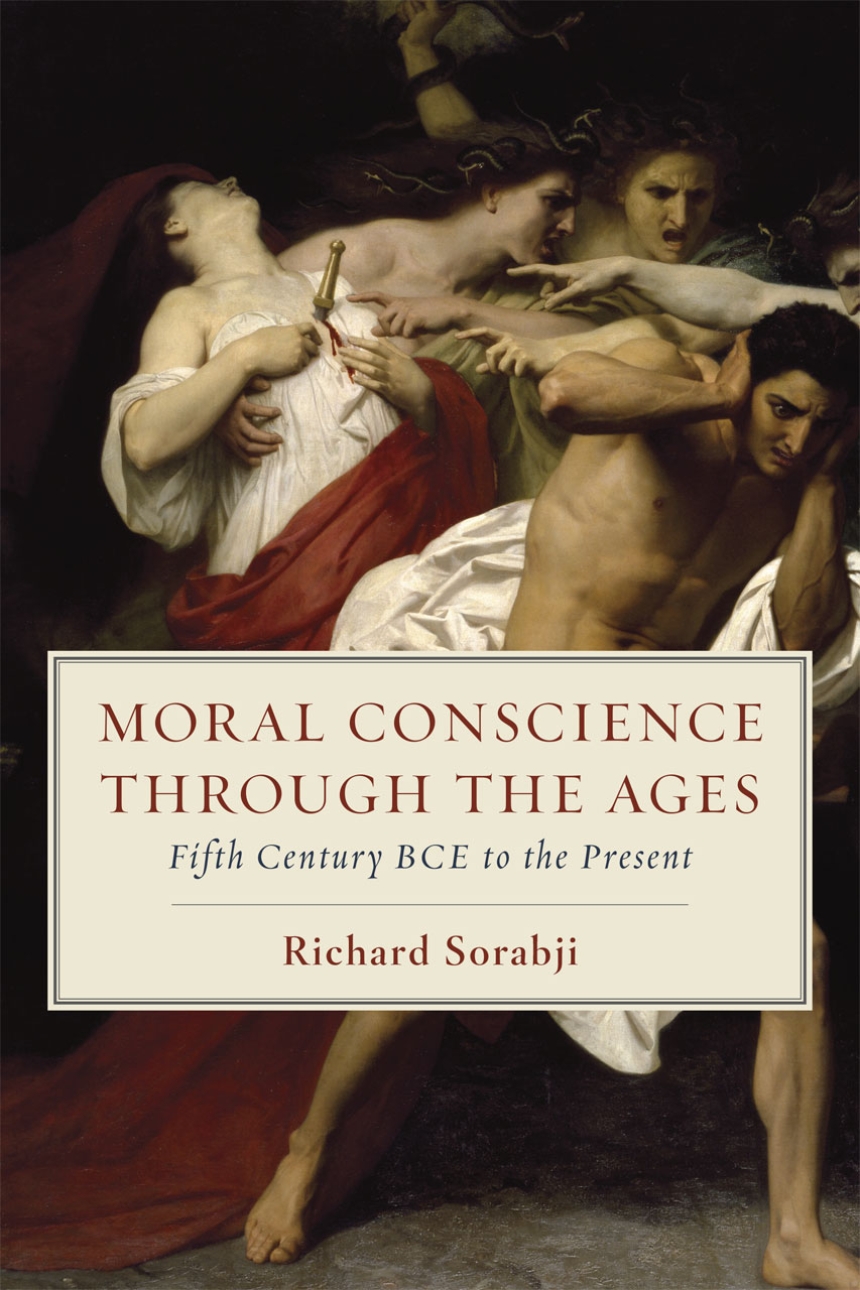Moral Conscience through the Ages
Fifth Century BCE to the Present
Sorabji examines an impressive breadth of topics: the longing for different kinds of freedom of conscience, the proper limits of freedom itself, protests at conscience’s being ‘terrorized,’ dilemmas of conscience, the value of conscience to human beings, its secularization, its reliability, and ways to improve it. These historical issues are alive today, with fresh concerns about topics such as conscientious objection, the force of conscience, or the balance between freedoms of conscience, religion, and speech. The result is a stunningly comprehensive look at a central component of our moral understanding.
Reviews
Table of Contents
Acknowledgments
Introduction
ONE / Sharing Knowledge with Oneself of a Defect: Five Centuries from the Greek Playwrights and Plato to St. Paul and First-Century Pagans
TWO / Christian Appropriation and Platonist Developments, Third to Sixth Centuries CE
THREE / Early Christianity and Freedom of Religion, 200–400 CE
FOUR / Doubled Conscience and Dilemmas of D ouble Bind: A Medieval Insight and a Twelfth-Century Misconstrual?
FIVE / Penitence for Bad Conscience in Pagans and Christians, First to Thirteenth Centuries
SIX / Protesters and Protestants: “Terrorization” of Conscience and Two Senses of “Freedom” of Conscience, Fourteenth to Sixteenth Centuries
SEVEN / Advice on Particular Moral Dilemmas: Casuistry, Mid-Sixteenth to Mid-Seventeenth Centuries
EIGHT / Freedom of Conscience and the Individual: Seventeenth-Century England and Holland
NINE / Four Rehabilitations of Conscience and Connection with Sentiment: Eighteenth Century
TEN / Critics and Champions of Conscience and Its Continuing Resecularization: Nineteenth to Twentieth Centuries
ELEVEN / Modern Issues about Conscientious Objection and Freedoms of Conscience, Religion, and Speech
TWELVE / Retrospect: Nature and Value of Conscience
Select Bibliography
Table of Main Thinkers and Writers
General Index
Index Locorum
